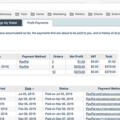CFPB issues clarification on upcoming changes to loan originator licensing rules
In just five days, the licensing rules for mortgage loan originators will change, making it easier for LOs to change jobs and continue originating mortgages without any license-related delays.
Under the new rules, which go into effect on Nov. 24, 2019, LOs who change corporate affiliation from a federally insured institution to a nonbank lender, or move across state lines, will be granted “transitional authority” that will allow them originate mortgages while they work to meet the Secure and Fair Enforcement for Mortgage Licensing Act’s licensing and testing requirements.
LOs will then have
120 days to complete the SAFE Act licensing requirements.
That’s a change from the previous rules of the SAFE Act, which currently states that an LO who moves between states or from a bank to a nonbank is required to wait for a new license before they can begin originating at their new job.
And with those changes about to take effect, the Consumer Financial Protection Bureau issued a clarification recently on the licensing rules to address a possible loophole that could have left certain LOs unable to originate mortgages at their new jobs.
According to the
CFPB, the clarification deals with the agency’s Regulation Z, which implements
Truth in Lending Act.
Under Regulation Z,
generally, if a mortgage company employs an individual loan originator who is
not licensed and not required to be licensed, the company is still required to “perform
specific screening of that individual before permitting the individual to act
as a loan originator and to provide certain ongoing training.”
But, as the CFPB
notes, Regulation Z is “ambiguous” as to whether these requirements would apply
to companies employing loan originators that would be granted temporary status
under the new rules.
To address this ambiguity,
the CFPB issued an “interpretative rule” that states that mortgage companies
are not required to comply with “certain screening and training requirements”
under Regulation Z as long as the individual loan originator is authorized to
act as a loan originator under the new rules.
Put simply, if the
LO was previously authorized to serve as an LO before, they will be able to
continue to act as one going forward as long as they complete their SAFE Act licensing
requirements within 120 days.
From the CFPB:
Under the SAFE Act, before issuing a state loan originator license, states must ensure that the individual never has had a loan originator license revoked; has not been convicted of enumerated felonies within specified timeframes; demonstrated financial responsibility, character, and fitness; completed 20 hours of pre-licensing education; and passed state specific testing requirements. Under Regulation Z, which implements the Truth in Lending Act, employers must perform substantially the same screening of certain loan originators before permitting them to originate loans. Employers must also ensure certain training for those loan originators. The interpretive rule clarifies that the employer is not required to conduct the screening and ensure the training of loan originators with temporary authority. The state will perform the screening and training as part of its review of the individual’s application for a state loan originator license.
The changes to the LO licensing rules were part of the Economic Growth, Regulatory Relief and Consumer Protection Act, which President Donald Trump signed into law last year.
The mortgage industry welcomed the CFPB announcement.
“The CFPB ruling helps standardize loan origination but only on a temporary level,” Anthony Casa, chairman of the Association of Independent Mortgage Experts, said. “We support the CFPB and its mission and believe greater accountability is positive for the mortgage origination market, going forward.”
Justin Wiseman, the Mortgage Bankers Association‘s managing regulatory counsel, agreed.
“MBA is pleased that the Bureau has issued this interpretive rule to provide helpful clarity ahead of temporary authority becoming operative at the end of the month,” Wiseman said.
To read the CFPB’s full rule, click here.
The post CFPB issues clarification on upcoming changes to loan originator licensing rules appeared first on HousingWire.






